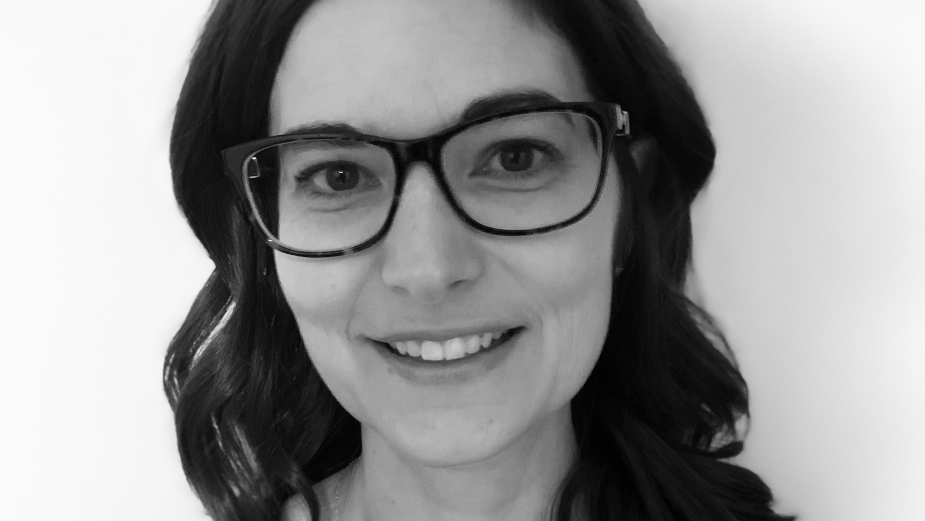
Production Line: Jacqueline Bellmore on the Producer's Ever Growing Toolbox

Jacqueline ‘Jac’ Bellmore joined McCann Canada in 2014 as a senior producer and became the agency’s executive producer, director of production in 2019. In her role she oversees all production out of McCann’s Toronto, Calgary and Montreal offices. During her tenure at McCann, she has produced for nearly every client at the agency, working across broadcast, digital, print, radio, experiential – and everything in between. Anyone who works with Jac knows how much she loves to produce and push the creative. During her 19 year career, Jac has produced for brands including Coca-Cola, Nestlé, Kellogg’s, Chevrolet, P&G, Tourism Vancouver, Bell, RBC, Petro-Canada, L’Oréal, Wendy’s, Nespresso, Bayer Crop Science, Western Canada Lottery Corporation, Prostate Cancer Canada, and more.
Outside of producing great work, Jacq is a dance mom and recently added ‘dog wrangler to her new Covid puppy, Nala’ to her list of responsibilities.
LBB> What lasting impact has the experience of the pandemic had on how you and your agency think about and approach production?
Jac> The pandemic has reminded everyone of the importance of bringing in production at the briefing stage to work with strategy, account management and creative. Working together during the earliest stages of creative ideation allowed us to bring ideas to life despite all the challenges and restrictions the pandemic put on our industry.
Producers had to re-think the way jobs were budgeted and prepped, adding in more money for Covid-related costs and more time for pre-production. We had to allow for the new planning required to seamlessly film the creative in a virtual world and become experts, practically overnight, in this way of shooting. We needed to implement new communication processes and quickly adapt to managing multiple screens and devices on shoot days, as well as in post and audio sessions. All the while keeping the clients as a key part of the process.
The agency and client teams leaned on the expertise of our producers, putting their trust in us to help them navigate through the ever-changing production environment. Not to mention the new normal of multiple technology platforms, working from home, home-schooling our children while producing, and increasing pressure to produce more in less time and with tighter budgets.
I am proud of the team at McCann Canada and how our three offices in Toronto, Calgary and Montreal worked together as a cohesive unit to produce some great creative. The use of virtual technology allowed us to feel connected, no matter where we were physically, and become a stronger creative agency.
LBB> Aside from Covid-19, what have been the most disruptive forces to hit agency production in the past few years?
Jac> Ever-changing technology and platforms have been the most disruptive force to hit agency production in the past few years. We are constantly being asked to produce work in new formats that we need to quickly become experts in. The budgets are not getting bigger (and in most cases are getting smaller), yet we are being asked to produce fully integrated campaigns that have hundreds of deliverables for less money than ever before. The perceived speed of technology has also pushed expectations for production to work faster and be always on and ready for the next request.
LBB> A good producer should be able to produce for any medium, from film to events to digital. Do you agree or disagree with this statement? Why/why not?
Jac> I wholeheartedly agree with this statement. Producers are doers who make creative work happen – regardless of the medium. A great producer knows how to do the research and knows how to build a network of production experts to partner with to bring great creative ideas to life, irrespective of form or format.
Producers need to have a well-equipped toolbox of skills to produce these days – we are asked to produce for traditional mediums such as TV, print and radio, but also need to know how to produce live events, activations, art displays and product development. A great producer is never satisfied with what they know – they are eagerly looking ahead to know what’s around the next corner or the next big thing. It can be overwhelming and scary at times, but it can also be incredibly rewarding. We are lucky that our profession evolves with the times, and we are not doing the same thing day in and day out. It’s a very exciting time for producers in this industry right now.
LBB> And leading on from that, when it comes to building up your team at the agency, what’s your view on the balance of specialists vs generalists?
Jac> I think that, as a leader of a production department, you want your team to be comprised of creative, smart, hardworking, problem-solving producers… a team who will take a challenge head-on and come out on top. Producers who are not scared to get their hands dirty and do the work, producers who are not afraid to ask questions, and producers who are not afraid to fail. In an ideal world, it would be great to have a team of specialists because there is definitely a need for them, but when you have a relatively small team, I would rather it be a small team of passionate, creative, intelligent producers who are amazing humans that the agency trusts, the clients trust and the industry trusts because they are great at their jobs, can work together to find a way to produce anything, and love what they do.
LBB> What’s your own pathway to production? When you started out, what sort of work were you producing and what lessons have stayed with you in that time?
Jac> I started my career in advertising as a production intern at Leo Burnett. When my internship was over, I applied to every agency in the city while I continued to call Leo Burnett weekly hoping for an opening – any opening to get my foot back in the door.
They hired me as a creative assistant responsible for award show entries which at the time were all submitted manually, by hand. I also assisted the producers with contracts, pre-production books and collecting director reels on tape from the avid room library and production houses. I watched, listened, asked questions, and learned from some of the brightest talent in the industry. I worked on building a strong foundation that would take me from Intern to senior producer. I left Leo after twelve years to start a new adventure with McCann, where I recently took the next step in my career to become executive producer for Toronto, Montreal, and Calgary.
A lesson I have taken with me from my early days is to be thankful and grateful. Thankful to have been given the chance to build the fundamentals and skillset that has provided me the opportunity to do what I love today, and grateful to have learned from the best in this industry. Producers can sometimes be in a rush to get to a senior level and can take for granted or overlook the importance of building a strong foundation that allows them to ask questions, problem solve, multi-task and learn from mistakes. Every job is different, and you learn something invaluable from each one, no matter how big or small.
LBB> If you compare your role to the role of the heads of TV/heads of production when you first joined the industry, what do you think are the most striking or interesting changes (and what surprising things have stayed the same?)
Jac> When I first started in the industry, heads of production were specialised in one path – broadcast. They managed a team of broadcast producers and now heads of production manage teams that produce across all mediums.
What hasn’t changed is that the most memorable heads of production were creative-driven producers who could think outside of the box and make the impossible possible. Producers who rarely said no but instead came back to the table with creative solutions. Producers who work as the third member of the creative team.
LBB> There are so many models for the way production is organised in the advertising industry - what set-ups have you found to be the most successful and why?
Jac> Every job is different. My team is big on collaboration and, by putting our heads together, we can accomplish what sometimes may seem impossible. Working together allows junior and intermediate producers the opportunity to grow and develop as they learn from more experienced producers. When I started, it was the “sink or swim” model which I think you still need to some extent, but having the open chain of conversation, support and a place for creative ideation allows producers to continue to grow and build the foundation necessary to succeed in this business.
LBB> When working with a new partner or collaborator, how do you go about establishing trust?
Jac> They key to establishing trust with a new partner or collaborator is being honest and keeping things real. You need to get to know a new partner as a person and not just a vendor and meeting them face to face – whether physical or virtual – can really help establish that trust. In some ways the pandemic has made it easier to connect with suppliers or partners we have never met with Zoom, Teams and Google. We’re able to make personal, face to face connections where, pre-covid, it would likely have been a phone call or email.
LBB> What are your thoughts on the involvement of procurement in production?
Jac> I do not think procurement is necessary for every client, but I certainly have seen the value of procurement in some projects. I have always had a great relationship with my procurement partners and respect the value they bring to the table when educating our clients on production; and, in many cases, they are the experts in terms of our client’s business and brand. I do believe that if you have a team of strong agency producers doing their jobs and looking out for their client’s best interest, procurement is not always a needed or required step – the agency producer can step in to educate, negotiate and make sure the client is getting creative value for their budgets.
LBB> When it comes to educating producers how does your agency like to approach this?
Jac> Producers have a lot of responsibility on their shoulders for staying on top of industry trends and technology, and there simply is no formal training for how quickly the industry is evolving. Thankfully, at McCann, our producers support each other and educate each other. We are lucky to have a great network of producers across North America that we can continue to learn from and seek support from. I believe in training producers through experience, pairing seasoned producers with up-and-coming producers and, in some cases, teaming senior producers together depending on the complexity of the project. This provides the opportunity for continued growth and continuous learning.
LBB> What new skills have you had to add to the team as a result of the pandemic?
Jac> Producers wear many hats by nature but add the pandemic to the mix and we became responsible for legal, health and safety, and risk assessment. The pandemic elevated multi-tasking to a whole new level. The demand for producing creative in record speed to respond to the pandemic also required expanding our production partner roster to ensure we had the right partners available to jump in and help make great work.
LBB> Should production have a seat in the c-suite - and why?
Jac> It’s imperative for agencies to recognise and respect the importance of the role production plays in the agency. I believe it’s important for production to have representation at the leadership table and to be heard. Production is responsible for bringing the creative to life no matter what is happening in the world, while being responsible for and answering to the client’s needs and budgets and the agency’s desires.
LBB> How have you approached integrating data with production workflows and processes? And, generally, how has data and the fact that we have constant live feedback on content performance changed production?
Jac> The data feed that helps us optimise creative is amazing – and challenging. For major content projects that we know will be seeing continuous optimisation, we need to factor that at the outset to build a production plan that doesn’t just stop at the ‘go live’ stage. It’s essential to have the key players available to be nimble with schedules and resources throughout the lifespan of the creative – always ready to produce changes based on learnings. We need to work together as an agency to produce creative in a way that allows us to make real time changes.
LBB> Clients’ thirst for content seems to be unquenchable - and they need content that’s fast and responsive! What’s the key to creating LOTS of stuff at SPEED - without sacrificing production values? Is it even possible?
Jac> I think that anything is possible when you have all the key players ready and available. The earlier we know something is coming, the more we can be best prepared for the quick turnaround. Having an in-house content director has been a key factor to our success this year in turning around content in lightning speed. Planning meetings about what is coming has helped us work together as an integrated team to be ready to capture and push out content very quickly. It’s important to have everyone briefed in from the beginning of the project so that we are all working together to create ideas that can be produced quickly without limiting creativity.
LBB> To what extent is production strategic - traditionally it’s the part that comes at the ‘end’ of the agency process, but it seems in many cases production is a valuable voice to have right up top - what are your thoughts/experiences of this?
Jac> With the vast and ever-changing landscape of what’s possible to produce today, our production group is playing a more strategic role than ever – and that means we start adding value from day one. These days, we work with creative teams at the earliest stages of ideation, inspiring creativity and exposing them to the latest formats, techniques, processes and suppliers. More than ever before, it’s our job to ensure they know all of the possibilities they have available to them first – and then we get down to business helping execute their ideas.
Another way that production has become more strategically important to the agency and thus more involved at the earliest stages is by recognising the role that the production team must play in moving our agency’s and our clients’ DE&I ambitions forward. Our team is working at every turn to ensure that diversity and inclusion are a part of every strategic production plan we craft, in order to make the fundamental changes our industry needs: with on-camera and behind the scenes talent, and in the messaging we are putting out in the world. We have the power to create meaningful change – and our team takes that responsibility very seriously.
LBB> What’s the most exciting thing about working in production right now?
Jac> The most exciting thing about working in production right now is that no two jobs are the same. Producers must learn to adapt to the ever-changing innovation, technology, platforms, and possibilities. The ideas are endless – if you can think it, you can make it.
LBB> And what advice would you give to an aspiring agency producer?
Jac> The advice I would give to an aspiring agency producer is to surround yourself with talented people, learn from them and absorb every ounce of creative expertise from them. Your learning is never done and never stop asking questions. Treat everyone with respect and take the time to say thank you. Fall in love with production and this industry because you can’t imagine doing anything else. Make it a priority to work on projects that mean something to you on a personal level and projects that make a difference in the lives of people. I have had the privilege to work on a few campaigns in the past couple of years that did just that (NYX Safe Space Session for National Coming Out Day, Prostate Cancer Canada and, most recently, a campaign for the Petro-Canada Care Makers Foundation). Don’t be afraid to fail and never be afraid to go for it. With risk comes creative reward.













